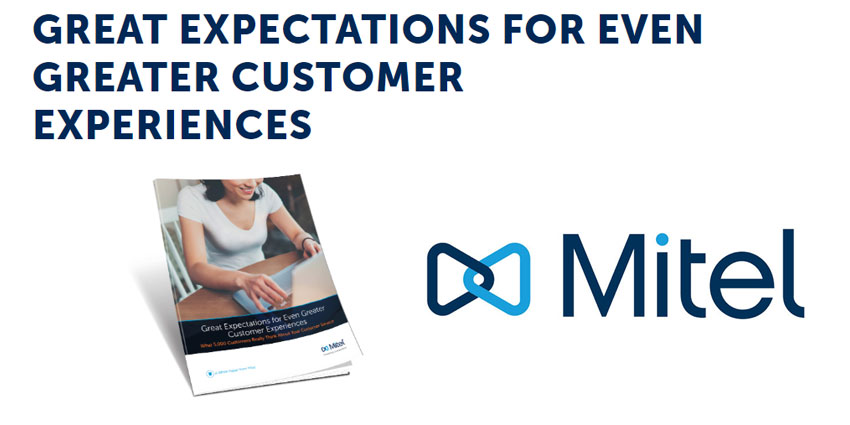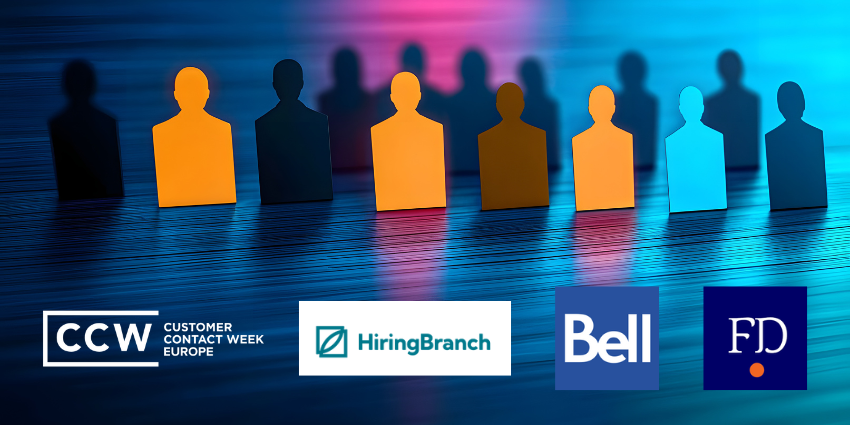A new Mitel survey of 5,000 adults from the UK, France, Germany, the United States, and Australia indicates a measurable disconnect between the advancements organisations think they are making to deliver exceptional customer experience and how customers actually view their commercial interactions. Specifically, fewer than half of respondents believe the technology needed to deliver the perfect online buying experience is available. This stands in stark contrast to findings of a previous Mitel survey in which 90 percent of IT decision-makers optimistically reported progress in improving customer experience through the use of technology.
While a clear sign of the growing pains associated with digital transformation (DX) initiatives underway globally, the new survey also uncovers an opportunity for technology to play a key role in defining and keeping pace with changing buyer behavior and preferences. In fact, over half of those surveyed believe machine-to-people interactions will positively transform the customer experience (CX).
Vertical Visionaries, Leaders and Followers
As customer experience becomes increasingly critical for businesses to remain relevant and compete, Mitel’s survey shows significant differences in customer satisfaction across vertical industries. Growing use of cloud communications and applications, combined with emerging technologies like the Internet of Things (IoT), artificial intelligence, chatbots, and natural language processing (NLP), are creating new ways for companies to nurture and build customer relationships. Winning companies will be those that are able to differentiate their brands by delivering seamless experiences across physical and digital environments, devices and channels. Currently, some segments are doing better than others.
- Financial Services and Hospitality top the charts for customer service: In the UK, less than two fifths (38%) of respondents said they were very satisfied with the customer experience on average across all industries. Financial services, a beneficiary of the recent uptick in global investments in fintech, receives the highest marks in customer service with 43% of survey respondents describing the service as great, followed by hospitality at 42%.
- Physical retail isn’t dead, but the customer experience is: Just over 60% of shopping done by UK respondents still takes place in a physical store, though that number is shifting. When asked about the challenges faced by today’s bricks-and-mortar retail outlets, 60% of respondents in the UK say the fact retail stores are struggling has more to do with the customer experience they provide, not products. Nearly half (49%) said “customer service just doesn’t exist any longer.”
A seamless omnichannel approach is critical for this market. Chatbots can be used to manage simple tasks, while IoT and team collaboration tools open up new avenues for communications across media, whether it’s voice, email, SMS, web chat, social media or a website.
- Speed is the game in sports and entertainment: In the fast-paced world of sports and entertainment, immediate and clear communication is a necessity. Almost half (47%) of respondents point to simplicity and speed as the most important factor in a good customer service experience in the UK, slightly higher than the global average (45%).
- Responsiveness vital in healthcare: Healthcare organisations receive the lowest marks from respondents in all countries when it comes to customer service. Nearly a fifth of UK respondents (18%) described their experience as ‘unsatisfying’. Simplicity and speed as well as responsiveness i.e. getting an answer to a request quickly are equally important here; both were named by 30% of respondents as most important.
Additional insights from the data indicate:
- Bots, AI and machines can fill the customer service gap: Consumers appear to be increasingly comfortable with machine-to-people interactions when shopping online, with 83% saying they are satisfied dealing with automated processes. Most do not want to interact with a person while shopping online unless the service is very complicated, or they’re having difficulties finding what they’re looking for. Over half in the UK (53%) said if they could “shop without speaking to a person, that would be a great thing” and 51% agreed that machine-to-people interactions will positively transform customer experience. Even so, physical retailers need to balance the use of technology. Consumers do expect people to efficiently help them when shopping in a physical storefront.
“As physical and digital worlds begin to seamlessly intersect, how effectively a company serves its customers across both domains determines tomorrow’s winners and losers,” said Jon Brinton, Senior Vice President of Customer Experience Solutions at Mitel
“By supplementing existing applications and investments with new technologies such as AI, team collaboration and IoT, companies can better communicate and collaborate internally and externally and begin to proactively deliver the level of customer experience buyers expect.”
Mitel’s study is the latest in its Business Insights Survey Series, which builds on previous research from August 2017 where more than 75 percent of IT decision-makers said they planned to tie together devices, emerging technologies, and communications and collaboration capabilities within two years to enable machine-to-people interactions to improve customer experience. This body of work expands on the concept established by Mitel in 2016 of “Giving Machines a Voice” to enable IoT and other machine triggers to launch real-time communications workflows that can improve how companies work and collaborate. Exploring a different angle, this survey examines how consumers view customer experience in shopping for goods and services across market segments, including retail, hospitality, sports and entertainment, healthcare, financial services and utilities.
For more results and a closer look at regional or country-specific data, download the white paper.
About Mitel
A global market leader in business communications powering more than two billion business connections, Mitel (Nasdaq:MITL) (TSX:MNW) helps businesses and service providers connect, collaborate and provide innovative services to their customers. Our innovation and communications experts serve more than 70 million business users in more than 100 countries.







